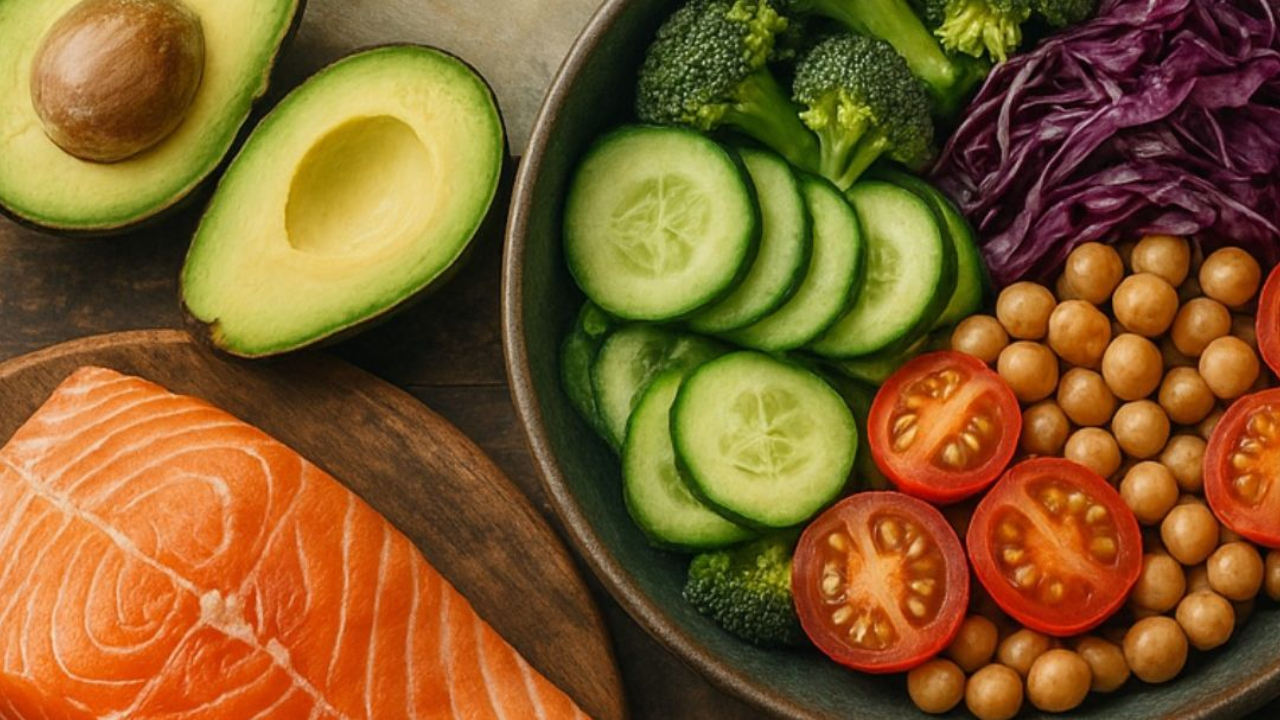Keto Diet and Gut Health, A Plant-Based Approach - The Gut Health Specialists
Nov 02, 2025
Many people turn to the keto diet in search of weight loss, sharper energy, or relief from chronic symptoms.
But if you are also thinking about your gut health, it can feel confusing to know whether keto will help or hinder your progress.
The gut microbiome is sensitive to the foods we eat, and keto brings a dramatic shift in metabolism that has ripple effects on digestion, microbial diversity, and overall balance.
Understanding these shifts and knowing how to support your gut along the way can make a big difference, especially if you are exploring a plant-based approach to keto.
Gut Health and Keto Diet
Research suggests that the ketogenic diet can induce measurable changes in gut bacteria, some of which are positive and others concerning. Short-term benefits may include better blood sugar control, improved metabolic markers, and a leaner body composition. In fact, Medical News Today highlights that keto may outperform even the Mediterranean diet for blood sugar balance in the early months.
But it’s not the whole story. A University of Bath study found that keto can reduce levels of beneficial gut bacteria while raising cholesterol, and long-term patterns can sometimes blunt the early gains. Keto reshapes the gut microbiota in ways that may leave some people with reduced microbial diversity.
The loss of dietary fiber is one reason why. Fiber is food for your beneficial microbes. Without it, important bacteria such as Bifidobacteria decline, lowering production of short-chain fatty acids like butyrate that protect the gut lining and calm inflammation. Staying on keto too long without fiber support can strain the microbiome. As Harvard Health reminds us, keto was designed as a medical intervention, not as an everyday lifestyle. For some, it can raise cholesterol or disrupt glucose control if not carefully managed.
If you are weighing keto for health reasons, it helps to know how your gut works and why it matters. Our guide on gut microbiome health offers a supportive overview.
Embracing Plant-Based Keto for Gut Health
A plant-based keto approach softens some of the challenges of strict keto by leaning on the healing qualities of plants. Instead of animal fats, you focus on avocados, nuts, seeds, and healthy oils such as olive or coconut. Leafy greens, zucchini, cauliflower, and Brussels sprouts become everyday staples, giving your body the fiber and phytonutrients it needs while still keeping carbs low.
This way of eating helps preserve short-chain fatty acid production, supports microbial diversity, and provides antioxidants that protect the gut. Seeds like flax and chia add omega-3 fatty acids that strengthen the gut barrier and reduce inflammation. See Dr. Gundle’s Guide to a Plant-Based Keto Diet for Gut Health.
Fermented foods like kimchi, sauerkraut, and coconut yogurt can also play a powerful role. They bring probiotics into the picture, nurturing microbial diversity that strict keto often suppresses. Plant-based diets and keto are often framed as opposites, yet they can work together when thoughtfully combined.
If you want more ideas, our practical guide to a plant-based diet offers supportive tips on getting enough fiber and variety, even on low-carb days.
Practical Plant-Based Strategies for the Microbiome
Shifting to plant-based keto requires care, but it can be deeply supportive when done intentionally. A few gentle strategies can help:
- Choose a variety of low-carbohydrate vegetables to maximize phytonutrients.
- Rely on seeds and nuts for protein, fiber, and healthy fats.
- Add fermented vegetables or coconut yogurts for probiotics.
- Experiment with resistant starch or prebiotic fibers in very small amounts if tolerated.
- Move into ketosis gradually and, if possible, with professional guidance.
Keto can feel both hopeful and overwhelming. For some, it delivers quick metabolic changes and even protective effects against conditions such as colorectal cancer, as seen in the UCSF study, pointing to its potential in calming autoimmune reactions through changes in gut microbes. But the same diet can also narrow food choices, reduce microbial diversity, and place strain on the heart or metabolism if not carefully balanced.
What matters most is listening to your body, making adjustments that protect your gut, and avoiding rigid rules that leave you depleted. Food Navigator notes that many people are now moving away from extreme keto toward gentler, more sustainable ways of eating. A plant-based keto approach offers one path to keep the gut nourished while still benefiting from fat metabolism.
Support for Your Gut Health Journey
Your gut is unique, and so is your response to any diet. If you are curious about whether keto or plant-based keto could support your health, we are here to help. At The Gut Health Specialists, we offer compassionate, personalized guidance to help you find the balance that protects your microbiome while meeting your health goals.
Disclaimer: This article is for informational purposes only and is not a substitute for professional medical advice. Always consult with a healthcare provider before making changes to your diet or lifestyle.

